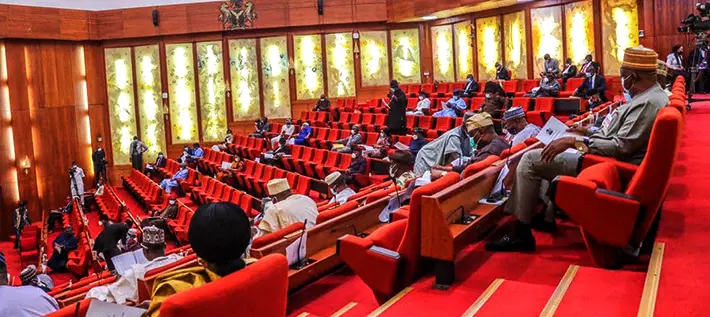
The Nigerian Senate is considering a landmark electoral reform that could reshape the country’s voting process by introducing nationwide same-day elections. The Electoral Act (Amendment) Bill, 2025 (SB.701), sponsored by Senator Saliu Mustapha (Kwara Central), aims to reduce election costs, enhance voter participation, and streamline electoral logistics.
During the debate, Senator Mustapha highlighted the soaring financial burden of elections, revealing that costs have skyrocketed from N1.5 billion in 1999 to N350 billion in 2023. He argued that staggered elections are not only expensive but also inefficient, calling for a shift to a system used in countries like the United States, India, and Brazil, where same-day elections have proven more cost-effective and engaging for voters. He further emphasized that prolonged campaign periods disrupt governance and create unnecessary political tension, making a shorter campaign cycle more desirable.
The proposal received overwhelming support from most senators, who agreed that a same-day election would minimize disruptions, curb electoral malpractice, reduce voter fatigue, and enhance the credibility of the electoral process. However, concerns were raised about the Independent National Electoral Commission (INEC)’s ability to handle the logistics of conducting all elections in a single day. Senator Adams Oshiomhole cautioned that while the bill has merit, INEC must be adequately prepared to avoid operational setbacks, adding that multiple ballot papers could cause confusion, particularly among illiterate voters.
If passed, the bill will mark one of Nigeria’s most significant electoral reforms, cutting costs, encouraging greater voter participation, and reducing economic disruptions caused by prolonged election cycles. The Senate is set to subject the bill to further scrutiny in the coming weeks, with stakeholders keenly watching whether Nigeria will adopt a more efficient election model.
Comments